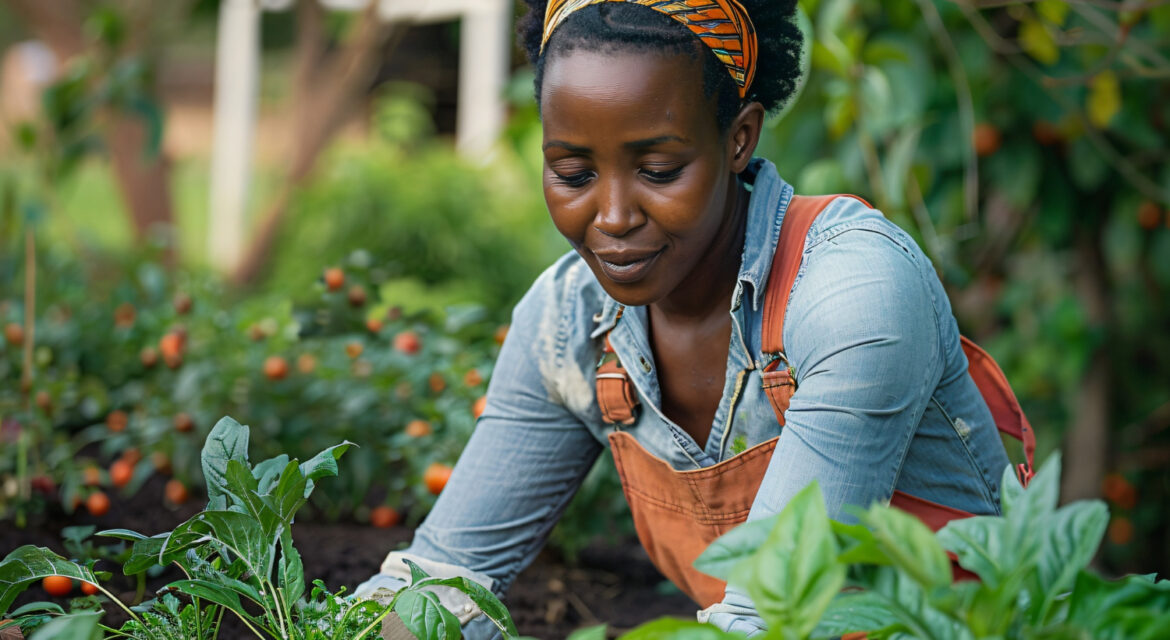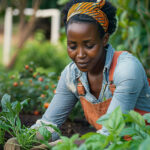 22 November 2024
22 November 2024The challenges facing agricultural productivity in Ghana
The goal of agriculture and agri-business has been to enhance crop yield and productivity in order to serve the ever-growing population of Ghana. There is also the need to ensure food safety and security, thereby ensuring safe, high-quality products, innovation, and commitment to customer satisfaction.
In order to attain these goals, producers need to refocus on technology adoption, opting sustainable production methods, and ensuring sustainable production practices which would engender innovativeness in agricultural production. This would also produce financial viability and enhanced livelihood for the agricultural value chain actors.
Having adopted sustainability, there is the need for marketing to expand their market presence, maintain a competitive edge, becoming a part of the global food supply chain, and remaining a reputable option for the consumers.
At Commodities Investments Ghana Ltd (CIGL), we believe that this would contribute positively to the community in job creation and sustenance, and cause the various actors to be responsible players in the food industry.
There are potentials in the Ghanaian agricultural sector, however many of the actors do not realise that agriculture is a big business. Agriculture remains the mainstay for the Ghanaian economy, holding a third of the country’s GDP and employing over 30 per cent of the labour force. Despite this, agriculture still suffers from lack of basic skills in best agricultural practices which has affected yields, technology adoption, efficiency, quality and competitiveness especially among smallholder farmers, who account for over 80 per cent of the Ghana’s agricultural output.
In Ghana, there is significant untapped potential as yields for cereals and starchy staples, for example, are far below the attainable production levels. Ghana currently produces less than 30 per cent of the raw materials needed by its agro-based industries. In addition, the growing segment of middle-income households (about five per cent of Ghana’s population) provides a significant consumer base for locally processed foods.
Food insecurity is staring at us as a nation. The need for food security and sustainability is ever growing.
Policy makers must wake up to their responsibility to ensure that our young people, especially graduates from our tertiary institutions are incentivised to see agriculture as a viable option for employment and livelihood. The government has introduced incentives (e.g. tax holidays) to promote food processing but the response has been low as major bottlenecks such as lack of space infrastructure, finance, etc. remain unresolved.
The Challenges of Agriculture in Ghana
In the context of sustainable development, poverty remains a major challenge in Ghana. Illiteracy, hunger, disease, and unemployment are still widespread, and food security has become a scourge in many developing nations like Ghana. While the agricultural sector continues to dominate the economy, Ghana’s agricultural production meets only half of domestic cereal and meat needs and 60 per cent of domestic fish consumption.
Current production for major food crops including rice, maize and soya, tubers, vegetables, and fruits is carried out by small scale farmers with low levels of mechanisation and production. Food production is dominated by subsistence farming, and without preservation, means of transport and storage infrastructure.
Our farmers do not also see farming as business, and the lack of knowledge about efficient irrigation practices, soil and water usage including when and how much water to apply, and lack the capacity to consistently meet and exceed the stringent safety and quality standards, especially as they vary across domestic and international markets. Most enterprises do not have the skills to formalise their enterprises; poor record keeping, poor financial planning, inability to identify business opportunities and seek industry information for enhanced productivity.
Consequently, there is also limited access to capital to enable farmers adopt appropriate technology and agronomic practices. The need for funding to implement advanced quality control systems, adopt best farming practices to enhance production is crucial.
Moreover, smallholder farmers hardly have access to even the local markets. As a nation, Ghanaians do not have well-structured produce aggregation structures for the local and foreign markets, resulting in post-harvest losses. Access to aggregators and market, road and storage infrastructures help to avoid post-harvest losses. Moreover, access to the international market requires good knowledge of the supply chain efficiency and meeting export regulations, customs, and market-specific preferences.
To stay viable and competitive, we need to ensure consistent quality in food, optimising quality assurance processes, staying up-to-date with the evolving regulations, and ensuring full compliance and meeting rigorous food safety standards.
These are some of the high level problems facing our micro and small enterprises at the production level, resulting in low level of crop production.
These low levels of production and the poor sourcing and application of farm inputs result high input costs and high prices demanded by local farmers.
As such, cheaper imports play a significant role in the end markets for most of these crops in Ghana.
Opportunities of Sustainability in Agriculture
At the level of production that is bedeviled with setbacks, there are emerging agricultural production practices to ensure sustainability in food production and food security. An example, the regenerative agriculture for high yield is available for adoption as appropriate crop production practices.
Nevertheless, Ghana’s unemployment situation has been a social menace. The agribusiness values chains span a number of areas; production, storage, transportation, processing, marketing, etc. We need to motivate young entrepreneurs to take the opportunity in these value chains to support agriculture and create the jobs.
Moreover, the food industry in general caters to mass markets, and there are underserved niche segments with specific dietary needs and preferences. The industry develop specialised products for these consumer groups, e.g. gluten-free, organic, or plant-based options, leading to brand loyalty and market share expansion. With globalisation, there is demand for region-specific food products.
It now crucial to meet the need to customise product offerings to cater to the unique tastes and preferences of different international markets.
Therefore, food processing has become an option. The competitive environment in the food processing industry creates an unmet or underserved opportunity in regional customisation. This can spur proliferation of small manufacturing units to take care of the growing needs for specialised agricultural produce.
In the face of competition, there is room for enhanced supply chain efficiency. Streamlining the production process, reducing waste, and improving distribution logistics can lead to cost savings. These savings can be passed on to consumers, allowing the producers to serve price-sensitive markets effectively.
Recommendation and Conclusion
There is need to emphasize commitment from all stakeholder, especially, government, fund providers and private capital to support sustainability financing in agriculture and foods, and supporting local communities in order to attract environmentally conscious consumers and open opportunities for partnerships with organisations that share similar values.
This, therefore, provides an opportunity for domestic production to meet this market. We thereforeneed to embark on rigorous capacity building in farming practice and agribusiness in general. Weneed to support our farmers withpolicies proper training and extension services that are essential to address this gap.
When our farmers begin to treat agriculture as serious business, implement systems of controls and formalise their enterprises, there would not financing difficulties as has been the case at the moment. The financial institution would rather chase them to provide financing for their production activities.
The writer is the Chief Executive Officer of Commodities Investments Ghana Ltd.
BY CONSTANCE GBEDZO





Kevin Martin
It has survived not only five centuries, but also the leap into electronic typesetting unchanged. It was popularised in the sheets containing lorem ipsum is simply free text. sint occaecat cupidatat non proident sunt in culpa qui officia deserunt mollit anim id est laborum. Vivaus sed delly molestie sapien.